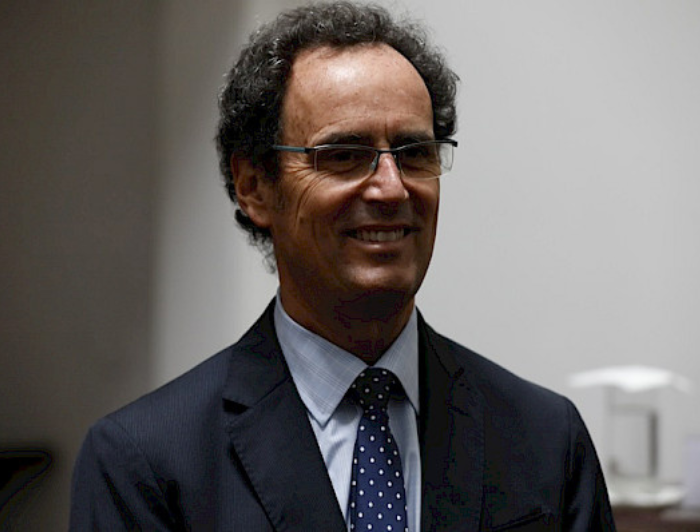UC Chile Professor Received Recognition for his Contribution in Earthquake Impact Reduction
20 March 2024
Renowned for his pioneering technology that can mitigate seismic effects by up to 10 times, Professor Juan Carlos de la Llera has been appointed as a new member of the National Academy of Engineering in the United States, the highest professional distinction in this field.

photo_camera The UC Chile Engineering professor's technological solutions, applied in social housing, public works, and heritage sites, have gained global recognition for their substantial contributions to safeguarding lives.
Chile is one of the countries with the greatest earthquake activity on the planet and has the record of the largest earthquake in history with a magnitude of 9.5 on the Richter scale in 1960, in the south of the country, in the city of Valdivia. In 2010 there was another earthquake with a magnitude of 8.8 on the Richter scale, the sixth strongest in the world. Both earthquakes are among the 10 strongest earthquakes in history.
The country has constant seismic movements every year due to its geographical location, since it is located on the western edge of the South American plate, where the Nazca and Antarctic plates converge.
In this line, Juan Carlos de la Llera, the Chilean engineer spearheading the development of seismic isolators and energy dissipaters in buildings, has been honored by the National Academy of Engineering in the United States.
The former Dean and professor of the Department of Structural and Geotechnical Engineering at UC Chile will join as a new international member of this institution, the highest professional distinction in this discipline, for his contributions to research, education, and innovation.
De la Llera has received significant recognition for his technological contributions, including the Endeavor and Avonni worldwide awards for his dedication to generating transformative changes for the country through innovation. He also received the Raúl Devés Jullian and Management awards from the Institute of Engineers and the Chilean Engineers Association, respectively.
Furthermore, the Chilean engineer was also honored for his work in the Commission for Resilience against Natural Disasters. This is where he chaired the national strategy to promote science, technology, and innovation in the country's resilience, leading to the establishment of an institute coordinating these efforts (Itrend).
"The country's isolation technology lead by Professor de la Llera helps reduce the effects of seismic activity by up to 10 times. Additionally, energy dissipators in buildings can cut structure deformation by 50 percent. These systems are located in the substructure of constructions, working together with the structural supports of the buildings. These technological solutions, applied in social housing, public works, and heritage sites, have gained global recognition for their substantial contributions to safeguarding lives”, highlighted Loreto Valenzuela, dean of the UC Faculty of Engineering.
The UC Engineering professor's technological solutions, applied in social housing, public works, and heritage sites, have gained global recognition for their substantial contributions to safeguarding lives - highlighted Loreto Valenzuela, dean of the UC Faculty of Engineering.
Share
"The earthquake was a great experiment for a set of new seismic protection technologies developed in Chile, which proved to be extraordinarily effective in reducing the effect of the movements that occurred. For example, Puerto Coronel's ingenious seismic isolation system was quickly copied by its counterpart from Los Angeles in California, United States. Chile has definitely been a pioneer in world seismic engineering and, in that field, it rubs shoulders with the best. When our "mind, heart and hands" are dedicated to the purpose of solving, we can and know how to do these big problems collaboratively, because the talent in Chile is enormous. All that remains is to persevere in educating, researching and translating all this knowledge into concrete and effective actions,” said the academic.
After leading UC Faculty of Engineering for 12 years, the former Dean promoted a new interdisciplinary curricular structure focused on innovation and entrepreneurship, recognized by MIT in a global ranking that positioned UC Chile among the most emerging engineering schools. Juan Carlos de la Llera is a Civil Engineer from UC Chile, and has a PhD and a Master’s Degree in Science from the University of California, Berkeley. He is also a researcher at CIGIDEN (as per its Spanish acronym).




